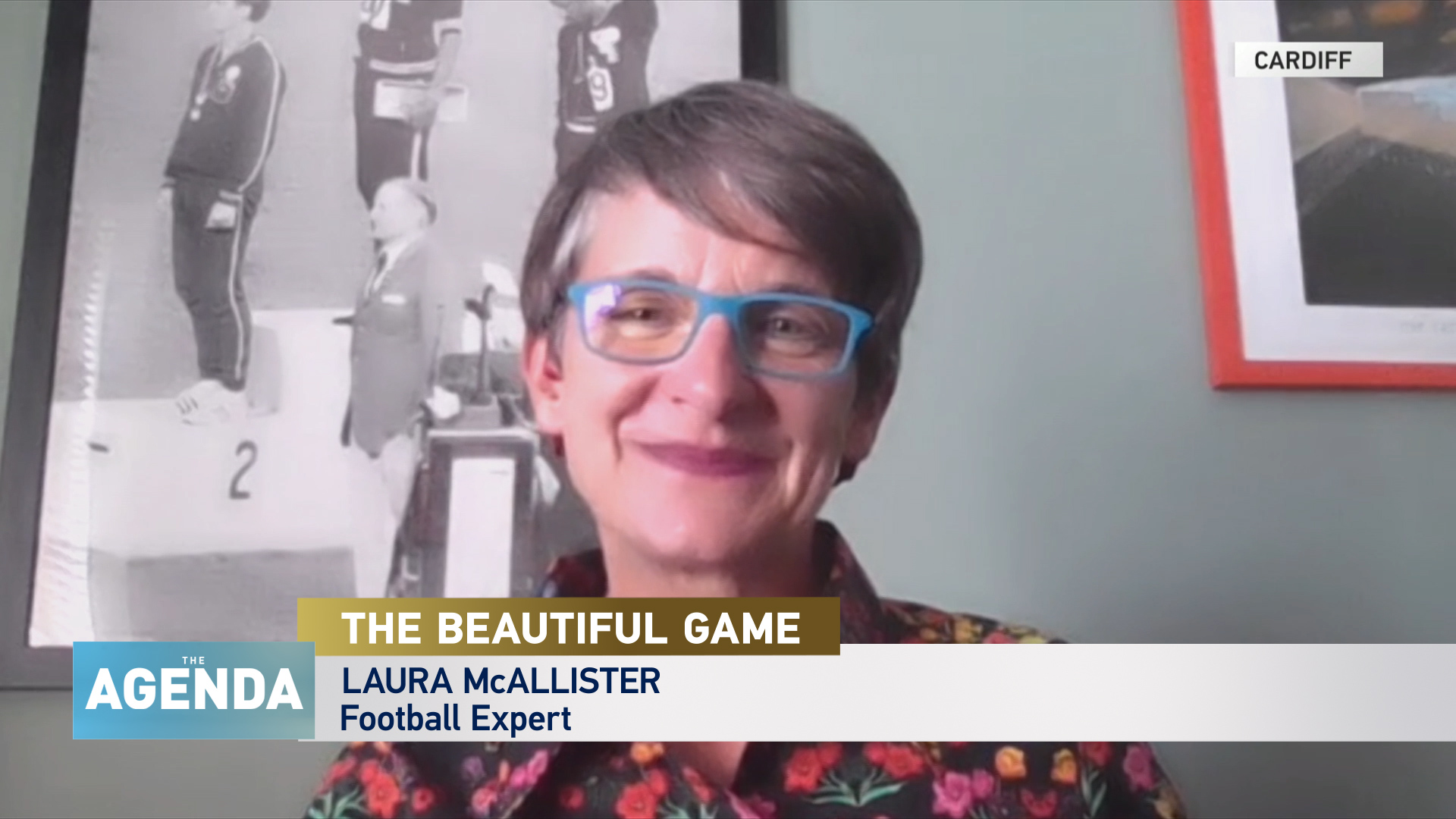06:27

WHAT'S THE ISSUE?
While the collapse of the European Super League and the impact of COVID-19 may have dominated the footballing headlines in the past year, there have been some positive recent trends in the world of football.
Possibly none more so than the rise of the women's game, which has gained an extraordinary prominence in recent years – a trend that is set to continue, according to Laura McAllister, former captain of the Wales national team and current deputy chair of UEFA's Women's Football Committee.
But there could be some clouds on the horizon – particularly when it comes to next year's World Cup, which will, controversially, take place in Qatar in November and December – in the middle of Europe's domestic season.

MEET THE EXPERT
Laura McAllister is a former captain of the Wales national Women's team turned football administrator.
She is a board director at the Football Association of Wales Trust and deputy chair of UEFA's Women's Football Committee. Earlier this year, she stood for election as a UEFA representative on FIFA Council.
She is also a professor of public policy at Cardiff University.

WHAT DOES McALLISTER SAY?
"I'm an optimist by nature," McAllister tells Stephen Cole. "So I can see lots of positives about football at this point in time, particularly the growth of the game among girls and women. It's an area that lots of nations, not just within UEFA, but across FIFA, across the world, have prioritized. And I think that's very encouraging that we're reaching out to countries that perhaps hadn't really had any infrastructure for developing the game for both sexes."
She adds: "I'm afraid, I'm less optimistic about the men's game, because I think there's been a polarization of some of the very top clubs and that was exemplified in the proposed breakaway European Super League… The disconnect between the top professional men's clubs and the rest of the game has become ever more pronounced."


WHAT'S NEXT?
The next big issue football has to face is the World Cup in Qatar in 2022. And for McAllister, it's too soon to tell quite what impact that will have on the face of football.
"The decision was made to take the World Cup to Qatar. We have to now see whether that can be done in a safe and sustainable and, let's be honest, equality-driven way, so that the game's image is not damaged.
"I think equality is the fundamental principle of football, certainly in Europe, respect and equality," she adds. "I think whatever happens next year, next winter, we'll need to really revisit this and make sure that it is a tournament that continues to reflect all that's good about the game rather than undermine some of its fundamental principles."

ALSO ON THE AGENDA:
- Steven Zhang, chairman of Inter Milan, discusses the challenges ahead for the club (after winning its first Serie A title in 11 years) and for European football in the wake of COVID-19 and the collapse of the European Super League.
- Dan Jones, head of the sports business group at Deloitte, joins Stephen to consider where the financial power really sits now in the world of football and whether club owners ignore fan power at their peril.

